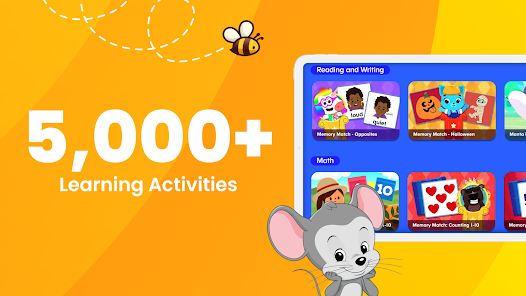Early childhood is full of curiosity, discovery, and rapid development. From the minute they walk, talk, and interact, toddlers absorb everything. This stage provides the framework for cognitive, emotional, and social development. Structured toddler learning activities are a great method to help this journey. Parents are using games for toddlers and digital platforms like toddler learning apps to help their kids learn while having fun.

Why Toddler Learning Matters
Brain growth accelerates in toddlerhood, between one and three. Connections made in this stage prepare for future learning. Beyond academics, toddlers learn language, motor skills, socialization, and emotional intelligence. Toddler games are more than just play. They are learning to follow directions, solve problems, and be patient after failing.
Stacking blocks may appear simple, but it improves hand-eye coordination and balance. Matching games promote focus and recognition, while singing games increase memory and rhythm. Learning through play is crucial to early development.
Learning with Toddler Games
Toddler games are one of the best ways to teach because kids love playing. Games let toddlers explore at their own pace, unlike restrictive learning techniques. Puzzles boost logic, while painting boosts creativity. Toddlers learn imagination and social skills through pretend play.
Many parents search for 2-year-old child activities that teach shapes, colors, and numbers. Children can swiftly notice patterns, link ideas, and learn new words at this age. Structured games help these skills develop naturally, making learning fun and effective.
Toddler Brain-Developing Games
Toddler brains absorb knowledge like sponges. Toddler games shape this development greatly. Matching, sorting, and problem-solving increase neuronal connections, teaching children critical thinking early on.
A toddler may play a color-sorting game. Despite its simplicity, the youngster is learning categorization, memorization, and organizing. They learn spatial awareness, balance, and cause-and-effect interactions using building blocks. These fundamentals prepare kids for formal schooling.
Digital Tools and Toddler Learning Apps
In the digital age, parents can benefit from a toddler learning app. Interactive games and educational aims are in these apps. Well-designed learning apps teach toddlers numbers, letters, and problem-solving in a fun way, unlike random entertainment.
Screen time worries parents, but these apps with toddler games make it productive. Coloring apps promote fine motor abilities, counting games teach math, and story-based games foster imagination and listening. The best thing is that these apps may be utilized anytime, making studying easy whether traveling or at home.
Toddler Games for 2 year olds and Social Skills
Toddler socialization is as crucial as cognitive development. Toddler games for 2 year olds generally involve parents, siblings, or other kids. Playing peek-a-boo, role-playing with toys, or building together helps toddlers share, take turns, and communicate. These activities teach patience, empathy, and teamwork.
Even toddler digital games can promote social learning when parents play with them. Guide a youngster via a learning program, praise when they succeed, or ask about their play to build communication and bonding.
Conclusion:
Toddler learning is crucial to early development. From cognitive development to emotional resilience, motor skills to social interaction, every game and activity helps kids. Each experience impacts how toddlers see and interact with the world, whether it’s conventional home games or new toddler learning apps.
Toddler games and playful learning let parents do more than entertain their kids. They are preparing children for school, life, and future difficulties and possibilities. Fun and organized early learning builds lasting success.